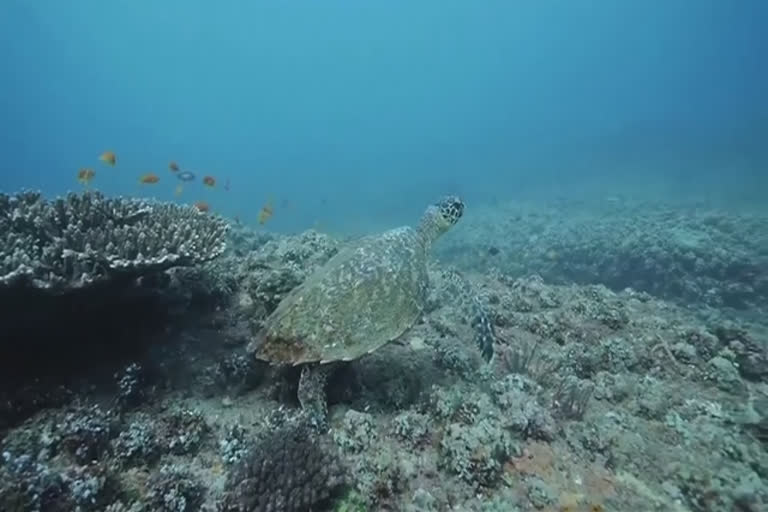Paris: Humanity is rapidly destroying the natural world upon which our prosperity -- and ultimately our survival -- depends, according to a landmark UN assessment of the state of Nature released Monday.
Changes wrought by decades of pillaging and poisoning forests, oceans, soil and air threaten society "at least as much as climate change," said Robert Watson, who chaired the 132-nation meeting that validated a Summary for Policymakers forged by 450 experts.
One million animal and plant species face extinction, many within decades, they reported.
Alarmingly, the accelerating pace at which unique life-forms are disappearing -- already tens to hundreds of times faster than during the last ten million years -- could tip Earth into the first mass extinction since non-avian dinosaurs died out 66 million years ago.
In the short term, humans are not at risk, said Josef Settele, a professor at the Helmholtz Centre for Environmental Research in Germany and co-chair of the UN Intergovernmental Science-Policy Platform on Biodiversity and Ecosystem Services (IPBES).
"In the longer term, it is hard to say," he told AFP. "If humans do go extinct, Nature will find its way, it always does." Halting and reversing these dire trends will require "transformative change" -- a sweeping overhaul of the way we produce and consume almost everything, especially food, the report concluded.
"We are eroding the very foundations of our economies, livelihoods, food security, health and quality-of-life worldwide," said Watson.
"By transformative change, we mean a fundamental, system-wide reorganisation." The pushback from "vested interests," he added, is likely to be fierce.
Drawing from 15,000 sources and an underlying 1,800-page report, the executive summary details how our species' growing footprint and appetites have compromised the natural renewal of resources that sustain civilisation, starting with fresh water, breathable air, and productive soil.
An October report from the UN's climate science panel painted a similarly dire picture for global warming, and likewise highlighted the need for social transformation "on an unprecedented scale" to cap the rise in temperature at 1.5 degrees Celsius (2.7 Fahrenheit).
The global thermometer has already gone up by 1C, and on current trends will rise another 3C by century's end.
Climate change and biodiversity loss, it turns out, feed off each other in a vicious cycle.
Deforestation and industrial agriculture are major drivers of species and ecosystem decline, but also account for at least a quarter of man-made greenhouse gas emissions.
Trees release planet-warming carbon dioxide when cut down, and the destruction each year of tropical forests covering an area the size of England shrinks the vegetal sponge that helps to absorb it.
Global warming, in turn, is pushing thousands of animals and plants out of their comfort zones, and intensifies the kind of heatwaves and droughts that recently fuelled unprecedented fires in Australia, Indonesia, Russia, Portugal, California and Greece.
